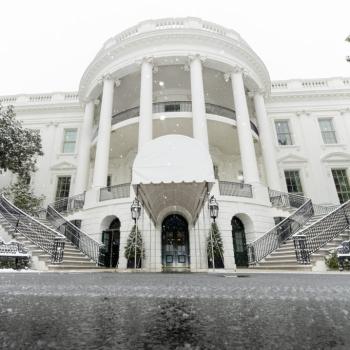
The concept of workplace flexibility has evolved from a mere trend to a fundamental component of organizational strategy. This shift has been significantly influenced by leaders who understand the intricate balance between granting autonomy and maintaining cohesion within their teams. Shane Koller, Chief People Officer at Ancestry, offers profound insights into how trust underpins the successful implementation of flexible work policies in his interview with me.
Embracing Flexibility with a Human Touch
Ancestry’s journey towards embracing workplace flexibility is a testament to its innovative spirit and commitment to its employees’ well-being. This organization, renowned for its contributions to family history and consumer genomics, has seamlessly integrated its human-centric mission with its operational strategies. The onset of the pandemic presented a unique challenge, propelling Ancestry, along with countless other companies, into uncharted waters regarding work environment norms. However, Ancestry’s response was not a mere reaction to these global changes. Instead, it was a well-considered strategy aimed at enhancing its work culture in alignment with its core values.
The decision to prioritize choice and flexibility was driven by a deep understanding of the evolving needs of the workforce. Recognizing that employees come with diverse backgrounds, responsibilities, and preferences, Ancestry sought to create a work environment that respects and accommodates this diversity. This approach goes beyond the conventional flex-time policies, embedding flexibility into the very fabric of the company’s culture. By doing so, Ancestry ensures that despite the physical distances that may separate team members in a hybrid setting, the sense of connection and the collaborative spirit that are crucial for innovation and productivity are not only preserved but strengthened.
The Power of Team Autonomy
The adoption of a team-autonomy model is perhaps one of Ancestry’s most strategic moves in navigating the complexities of hybrid work. This model is predicated on the understanding that those who collaborate closely on projects and initiatives are in the best position to make informed decisions about their work modalities. Such an approach demystifies the one-size-fits-all policy, offering a more nuanced and effective framework for collaboration.
Empowering teams to determine their schedules and work locations fosters a culture of trust and mutual respect. It signals to employees that the organization values their judgment and is confident in their commitment to the collective goals. This empowerment is not without its expectations; it comes with an implicit understanding that with autonomy comes responsibility. Team members are thus more inclined to take ownership of their tasks, driving engagement and motivation.
Moreover, this level of autonomy facilitates a dynamic work environment where teams can adapt their strategies and work modes to best suit their project needs and deadlines. It encourages innovation, as teams are free to experiment with different collaboration tools and techniques without being constrained by rigid corporate policies. This flexibility can lead to more creative solutions and a more resilient workforce capable of navigating the uncertainties of the modern business landscape.
Overcoming Management Challenges in a Hybrid World
The transition to a more flexible work environment is not without its challenges, particularly for managers accustomed to traditional office settings. Ancestry’s proactive stance on training and supporting managers in this new landscape is commendable. The focus on outcomes-based management, coupled with a robust support system that extends throughout the organizational hierarchy, ensures that leaders at all levels are equipped to navigate the nuances of hybrid management. This comprehensive approach not only addresses the immediate needs of adapting to a flexible work environment but also builds a foundation for sustained growth and adaptation.
Ancestry’s proactive approach to nurturing an environment of open dialogue and continuous learning stands as a beacon for organizations striving to adapt to the evolving landscape of work. The initiative to establish forums where managers can openly share their experiences, challenges, and best practices serves as a powerful platform for collective growth. These forums are not just meetings; they are incubators for discussion, where the conventional wisdom about remote work is challenged and redefined. This culture of openness encourages managers to voice their concerns, share their successes, and learn from each other’s experiences, fostering a sense of community and shared purpose.
The significance of these forums extends beyond mere knowledge sharing; they are pivotal in debunking the pervasive myths surrounding remote work. Common misconceptions about productivity, engagement, and team cohesion in remote settings are systematically dismantled through evidence-based discussions and the sharing of tangible success stories. This process is crucial in building a more inclusive culture that embraces diversity in work styles and recognizes the unique strengths and challenges of remote work. By confronting these myths head-on, Ancestry empowers its leaders and teams to approach remote and hybrid work with confidence and creativity, turning potential skepticism into advocacy for flexible work models.
Addressing Proximity Bias and Ensuring Equity
The challenge of proximity bias, wherein remote workers might be inadvertently undervalued compared to their in-office counterparts, is met with a thoughtful and comprehensive strategy at Ancestry. The company’s commitment to diversity, equity, and inclusion (DEI) is evident in its efforts to educate and equip its managers with the tools necessary to recognize and counteract such biases. This initiative is about more than just fairness; it’s about cultivating a workplace where every employee feels seen, heard, and appreciated for their contributions, not their location.
Ancestry’s approach to mitigating proximity bias involves a multifaceted strategy that includes training programs, mentorship, and regular check-ins that emphasize outcomes over visibility. Managers are encouraged to focus on the results their team members achieve, rather than the hours they are seen at their desks. This shift from presence-based to outcome-based evaluation is a critical step in ensuring that remote employees are judged by the quality of their work, not their physical proximity to decision-makers.
Ancestry leverages broader DEI principles to enrich its strategies for combating proximity bias. This includes fostering an inclusive environment where all voices are heard equally, whether they come from the head of the table or a screen. Such an environment encourages remote employees to participate actively and confidently in discussions, knowing that their contributions are valued just as highly as those of their in-office peers.
The Future of Flexibility at Ancestry
Looking ahead, Ancestry envisions a future where flexibility and connection coexist harmoniously. The ever evolving experiment in balancing autonomy with moments of meaningful collaboration points to a deeper understanding of what makes a workplace not just functional but thriving. Just last Fall, Ancestry began exploring collaboration days – coordinated, but voluntary, in-office days to support collaboration and strengthen their sense of community. The intention is to continue to embrace their hybrid approach, while also providing meaningful moments to connect in-person. The emphasis on choice, coupled with a commitment to fostering relationships, suggests a future where flexibility is not just a policy but a core aspect of organizational culture. The insights shared by Shane Koller underscore the critical role of trust in making flexibility work, a point I always focus on with my clients when helping their companies determine their flexible work models. Ancestry’s journey offers valuable lessons for any organization looking to navigate the complexities of the modern workplace. By prioritizing autonomy, supporting leaders, fostering open dialogue, addressing biases, and envisioning a future built on flexibility and connection, companies can unlock the full potential of their workforce. In this ever-evolving landscape, trust remains the steadfast cornerstone upon which successful and adaptable organizations are built.
Key Take-Away
Workplace flexibility is now a core strategy, not just a trend. Ancestry’s approach, emphasizing team autonomy and trust, shows how flexibility and connection can coexist effectively…>Click to tweet
Image credit: fauxels/pexels
Originally published in Disaster Avoidance Experts
Dr. Gleb Tsipursky was named “Office Whisperer” by The New York Times for helping leaders overcome frustrations with hybrid work and Generative AI. He serves as the CEO of the future-of-work consultancy Disaster Avoidance Experts. Dr. Gleb wrote seven best-selling books, and his two most recent ones are Returning to the Office and Leading Hybrid and Remote Teams and ChatGPT for Thought Leaders and Content Creators: Unlocking the Potential of Generative AI for Innovative and Effective Content Creation. His cutting-edge thought leadership was featured in over 650 articles and 550 interviews in Harvard Business Review, Inc. Magazine, USA Today, CBS News, Fox News, Time, Business Insider, Fortune, The New York Times, and elsewhere. His writing was translated into Chinese, Spanish, Russian, Polish, Korean, French, Vietnamese, German, and other languages. His expertise comes from over 20 years of consulting, coaching, and speaking and training for Fortune 500 companies from Aflac to Xerox. It also comes from over 15 years in academia as a behavioral scientist, with 8 years as a lecturer at UNC-Chapel Hill and 7 years as a professor at Ohio State. A proud Ukrainian American, Dr. Gleb lives in Columbus, Ohio.














